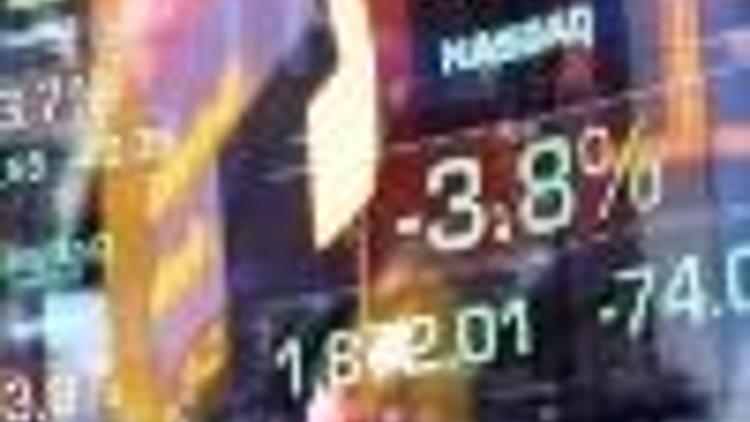Nervous financial markets take heart from big Australia rate cut
Güncelleme Tarihi:

Guarded optimism mounted on Tuesday for a unified international response to the credit crisis ricocheting around the world after Australia cut interest rates far more steeply than expected.
The focus shifted to other central banks, from Japan to Europe, for their answers to a call from U.S. officials for a "forceful and coordinated" global reaction to kickstart anaemic bank lending.�
Despair that such a solution had not yet been found weighed on some markets. Investors soured in particular on South Korea's ability to weather the storm.
But equities across Asia and commodity prices rallied after the Australian central bank slashed its benchmark cash rate by 100 basis points, the biggest single cut since 1992.
The MSCI index of Asian stocks outside Japan gained 1.5 percent, rebounding from its lowest level in nearly three years. Oil prices, down nearly 40 percent from their peak because of recession worries, climbed back over $90 a barrel.
"If the need is there to get rates down toward something that's more neutral, then why dilly dally? Get it done in one go," said Brian Redican, an economist at Macquarie. "It's a flexibility other central banks should take careful note of."
Japan's central bank, with far less room to manoeuvre, voted to keep rates unchanged, but gave a grim prognosis for the economy that hinted at more actions to boost liquidity.
The furious sell-off in global equities in recent weeks and the deepening freeze in credit markets has made this week's Group of Seven rich nations' meeting in Washington even more important.
"The key issue is coordination of policies, since individual country policies aimed at shoring up confidence of domestic institutions can actually exacerbate systemic risk," said Ashley Davies, a currency strategist with UBS in Singapore.
Speculation is swirling that China, with U.S. bonds making up the lion's share of its $1.81 trillion in foreign exchange reserves, the world's biggest stockpile, could have a key role to play in any global response.
But Liu Mingkang, the country's banking regulator, denied that Beijing might ride to America's rescue by pumping cash into the United States.
SELL-OFF
In the second full day of global trading after the U.S. Congress approved a $700 billion bailout intended to reassure markets, it was clear that whatever reassurance had been delivered was insufficient.
Instead, a crisis that began with the overheated U.S. property market was still shaking confidence worldwide.
Japan's Nikkei index of leading shares was down 2 percent after earlier falling to its lowest level since December 2003.
Looking to avoid potential trouble spots in the global storm, investors turned against South Korea, worried about the country's relatively high level of household and small-company debt.
The South Korean won dropped nearly 6 percent to the lowest in more than seven years against the dollar, despite assurances from the government that Asia's fourth-largest economy was not facing a currency crisis.
There were already doubts about whether the aggressive rate cut in Australia could shock the country's banks back into lending, with the National Australia Bank holding off on lowering its standard variable rate until markets calmed.
Emerging markets, which had gained mightily from the surging global expansion in the last three years, were sucked into the vortex. Trading was halted in markets as far afield as Brazil and Russia when stocks plunged.
Mexico's peso sank to its weakest level since the currency was allowed to float in the mid-1990s, and stocks plunged.
"We are in a state of panic. Markets are out of control," said Bertrand Delgado, an economist at IDEAglobal who covers Latin America.
Brazil's government unveiled a flurry of new economic measures, allowing the central bank to acquire loan portfolios of small and mid-sized local banks if needed.
India's central bank cut the amount of money that commercial banks must hold in reserve to alleviate a cash squeeze.
FROZEN CREDIT
The banking upheaval that began on Wall Street has effectively shut down interbank and other loan markets, pushing industrialised countries closer to recession. Conditions remained poor for interbank lending.
Fed fund futures have priced in a probability of a 75 basis-point cut by the U.S. central bank this month.
Federal Reserve Bank of Dallas President Richard Fisher, considered an inflation hawk, said capital markets were in "semi-panic".
"What I'm more worried about is how dysfunctional the system has become and what we, as the lender of last resort, need to do to encourage the liquidity to flow," he said.
Even as Sweden, Austria and Denmark followed Germany's lead by offering improved deposit guarantees to depositors, investors from Tokyo to London continued to slash risk and positioned themselves for a further tightening of credit.

